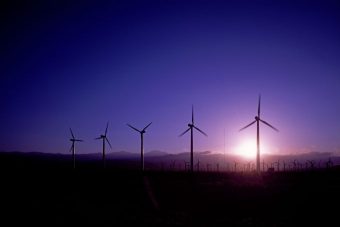
Costs have fallen in the latest French onshore wind tender with a total of 22 projects totaling 508 megawatts being awarded at an average winning price of €65 MW/h, according to results published by the French Government.
The results from the recent French onshore wind auction were published on the 28th of February, and a total of 22 projects were awarded contracts for a cumulative total of 508.4 megawatts (MW) at an average price of €65 MW/h. A total of nearly 900 MW worth of bids were submitted. The weighted average of €65 MW/h, according to European wind energy trade body WindEurope, was lower than the current tariff for smaller projects (€72 MW/h) and the €82 MW/h Feed-in Tariff previously awarded.
According to French renewable energy valuation company Envinergy, Nordex Development walked away with the largest share of the tender, with 99.6 MW, followed by Quadran and WPD.
“The results are unambiguous,” said French Minister for Energy, Nicholas Hulot. “The maturity and competitiveness of onshore wind and more widely renewable energies are a reality. We are only at the beginning of the energy transition.”
Praising the results of the tender, WindEurope CEO Giles Dickson said:
“It’s good to see costs fall. But they remain higher in France than elsewhere in Europe for a number of reasons. First, because project lead-time in France is seven to nine years on average, and once you apply for your permit at the start of the process it’s almost impossible to update it later on with the latest technology. So French developers don’t install state of the art turbines. Also the tip height of turbines is often limited to 150m or less in case of radars and aviation constraints which undermines the deployment of the latest technology. Projects are also get held up in the courts: 70% of authorised projects are currently held up in Administrative Tribunals.
“The government has now proposed reforms that will reduce the average time it takes for wind projects to be completed and connected to the grid. This is very good. The government also proposes to partially phase out the Contract for Differences tariff for small projects, reducing the eligibility to very small projects. It’s extremely important they do this the right way. Retroactive changes undermine investor confidence. They need protection for existing investments and stability and visibility on support mechanisms.”
Source: cleantechnica.com

